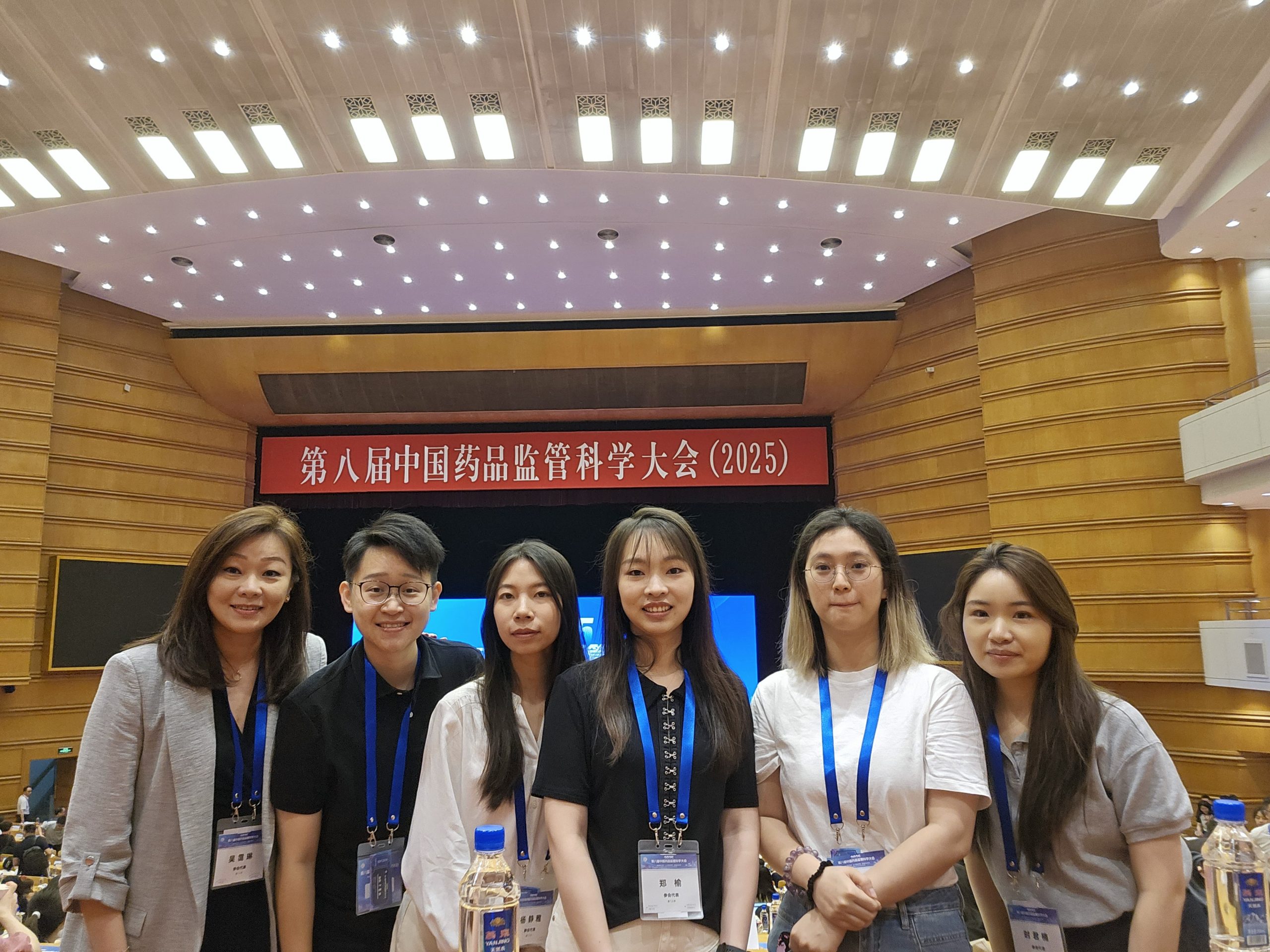The 8th China Pharmaceutical Regulatory Science Conference (2025), hosted by the China Society for Drug Regulation, was held in Beijing from June 13 to 15. The conference was themed “Comprehensive Deepening of Reform, Full Promotion of Innovation, Global High-quality Development – Empowering the Modernization of Chinese-style Pharmaceutical Regulation.” It brought together pharmaceutical industry leaders and academic experts to discuss the scientific development pathways for pharmaceutical regulation. Dr. Carolina Ung, assistant professor at the Institute of Chinese Medical Sciences (ICMS) and deputy director of the Centre for Pharmaceutical Regulatory Sciences (CPRS) at the University of Macau, led a group of graduate students to participate in this conference.
Speaking at the conference, Xu Jinghe, a member of the Party Leadership Group and deputy director of the National Medical Products Administration (NMPA), emphasized the need to strengthen quality supervision throughout the pharmaceutical product life cycle, improve risk investigation and resolution mechanisms, enhance quality control in key areas, and ensure high-level drug safety. He highlighted the importance of improving the system of legal regulations and standards, strengthening the establishment of technical support systems, optimizing regulatory processes, and innovating regulatory approaches to achieve more efficiency governance. By deepening international exchanges and collaboration, actively promoting convergence, coordination and trust in global drug regulation, accelerating the conversion and application of international guidelines, and promoting high-standard openness will be achieved. He expressed hope that the conference would align closely with national strategies, explore China’s modernized drug supervision, jointly seek core regulatory development, and focus on building new pathways for technology transformation.
The graduate students said that by participating in this conference, they gained a deeper understanding of the current priorities and key areas in China’s pharmaceutical regulatory policies and regulations, as well as the international experience of regulatory science in promoting global convergence and enhancing the quality and efficiency of regulatory review processes. They also learned about the emerging applications of artificial intelligence technologies in traditional Chinese medicine (TCM), medical devices and pharmaceutical distribution, as well as drug safety and risk management in clinical applications.
The conference consisted of a main forum and 15 sub-forums, focusing on themes such as scientific frontiers, science and technology policies, and regulatory science. Thirteen distinguished speakers from relevant national ministries and commissions, leaders of the NMPA, academicians, and industry experts delivered keynote reports. The conference attracted over 1,500 participants from national drug regulatory authorities in China, the scientific research and academic community, and the pharmaceutical industry. Through the gathering of collective wisdom and consensus, the conference reinforced the foundation of drug safety, stimulated innovation within the pharmaceutical industry, and empowered its high-quality development through regulatory science. It holds significant importance in advancing China’s drug regulatory development to new heights.

